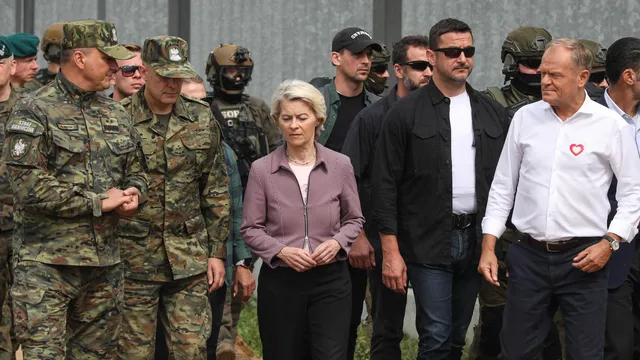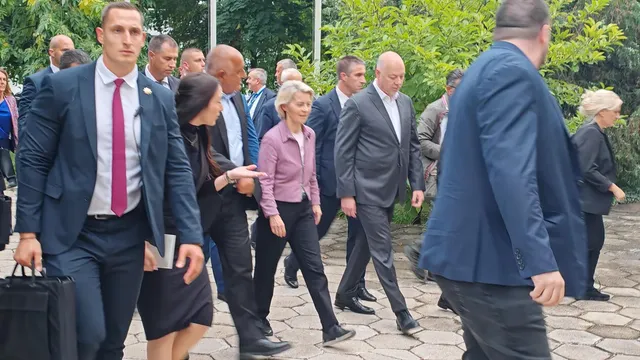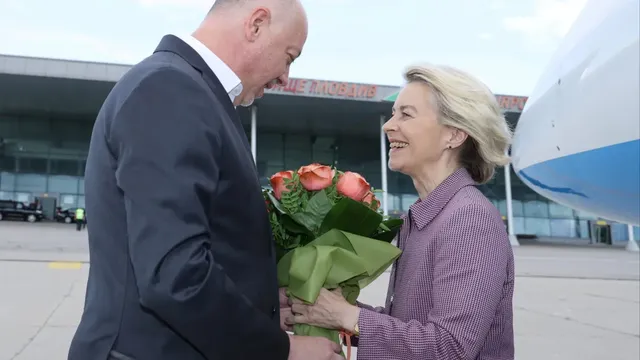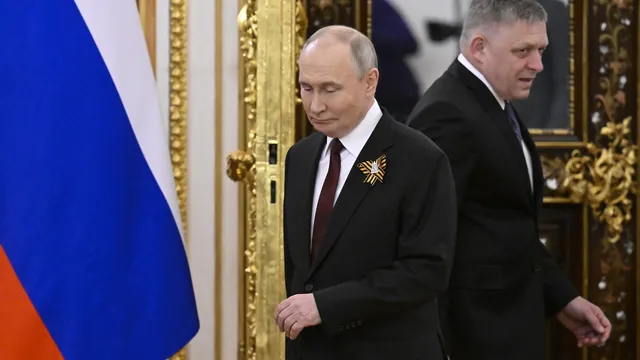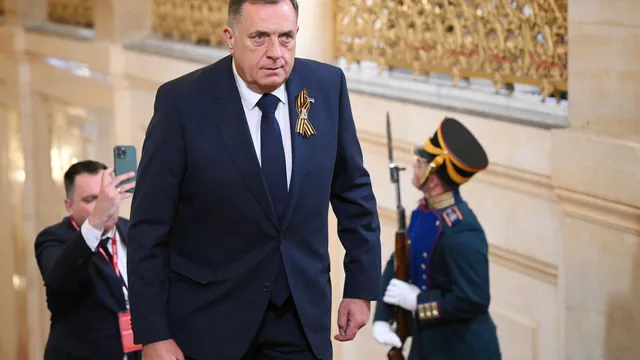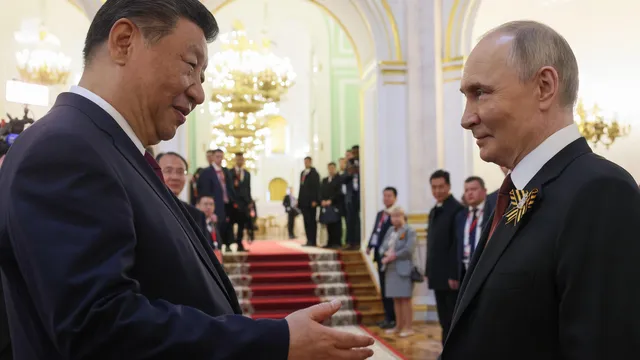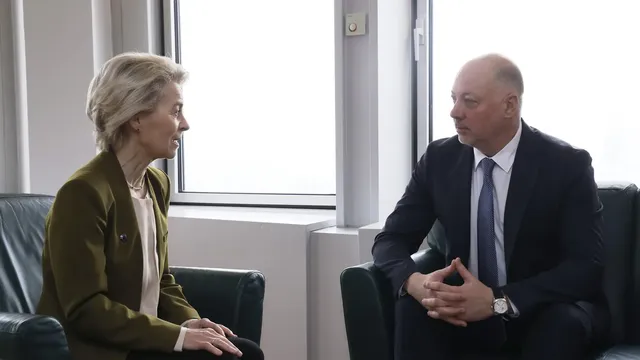Polish Prime Minister Donald Tusk and European Commission President Ursula von der Leyen visited the northeastern village of Ozerany Male on the Polish-Belarusian border in the Podlaskie Province to inspect the fortifications and surveillance systems installed there.
In an attempt to prevent migrants from entering from Belarus, Poland has completed the construction of an electronic barrier along the entire length of the border with Belarus in Podlasie, including the river sections.
The region is now secured with a 5.5-meter steel fence 186 kilometers long and a sensor barrier 206 kilometers long. In the neighboring province of Lublin, an electronic barrier has been installed along the Bug River on a 172-kilometer section.
In a statement to the media in Ozerany, Tusk said he had chosen this location "to show what modern solidarity means," PAP reported.
"This border is as important today as our dream of liberation from Soviet rule was 45 years ago," he said, referring to the anniversary of the historic agreement of August 31, 1980, between the then Polish communist authorities and striking shipyard workers from the Solidarity trade union.
The agreement gave impetus to a national movement that paved the way for the final destruction of the communist regime in Poland and throughout Eastern Europe.
The last days and weeks of the war in Ukraine have clearly shown that "no concessions, no subtle games with Russian leader Vladimir Putin and aggressive Russia will lead to success and will not guarantee our security," Tusk said.
"Poland, Europe, NATO, the United States must once again, as we did 45 years ago when Solidarity was founded, be very firm, decisive, and show solidarity against this new version of the evil empire," he added.
He also pointed out that the President of the European Commission had come to the Polish-Belarusian border "to find arguments to convince everyone in Europe that this is the border we must defend and in which we must invest European funds."
Earlier, Tusk and von der Leyen held talks focused on defense and security, including the protection of the EU's eastern border.
The agenda also included the European Commission's proposed €150 billion SAFE preferential loan program as part of the plan to rearm Europe in light of Russia's military buildup, the prime minister's office said.
At the local border post, they participated in a briefing with the command staff of the border guards and troops guarding the Polish-Belarusian border, where hybrid operations and migration pressure inspired by Belarus and Russia have been taking place for several years.
Later, they visited a warehouse with components for Poland's "Shield East" — a line of fortifications along the country's borders with Belarus and Russia, which will be connected to a similar line being built by the Baltic states.
Von der Leyen's Sunday visit to Poland is part of a series of meetings in EU countries bordering Russia and Belarus.
The trip began on Friday, August 29, in Latvia, then continued to Finland and Estonia on Saturday (August 30). After Poland, the tour will continue in Bulgaria later today, followed by visits to Lithuania and Romania.
In Bulgaria, Prime Minister Rosen Zhelyazkov and European Commission President Ursula von der Leyen will visit the country's largest state-owned military enterprise, Vazovski Mashinostroitelni Zavodi EAD, the government press service announced.
The two will hold a meeting to discuss issues related to European security and defense. After that, Zhelyazkov and Ursula von der Leyen will tour the factory and learn about its capabilities.
Since 2021, Poland has been facing an influx of migrants, mainly from North Africa and the Middle East, who are trying to enter the country from Belarus. Warsaw has accused Minsk of organizing the migration pressure in order to destabilize the EU. | BGNES

 Breaking news
Breaking news
 Europe
Europe
 Bulgaria
Bulgaria
